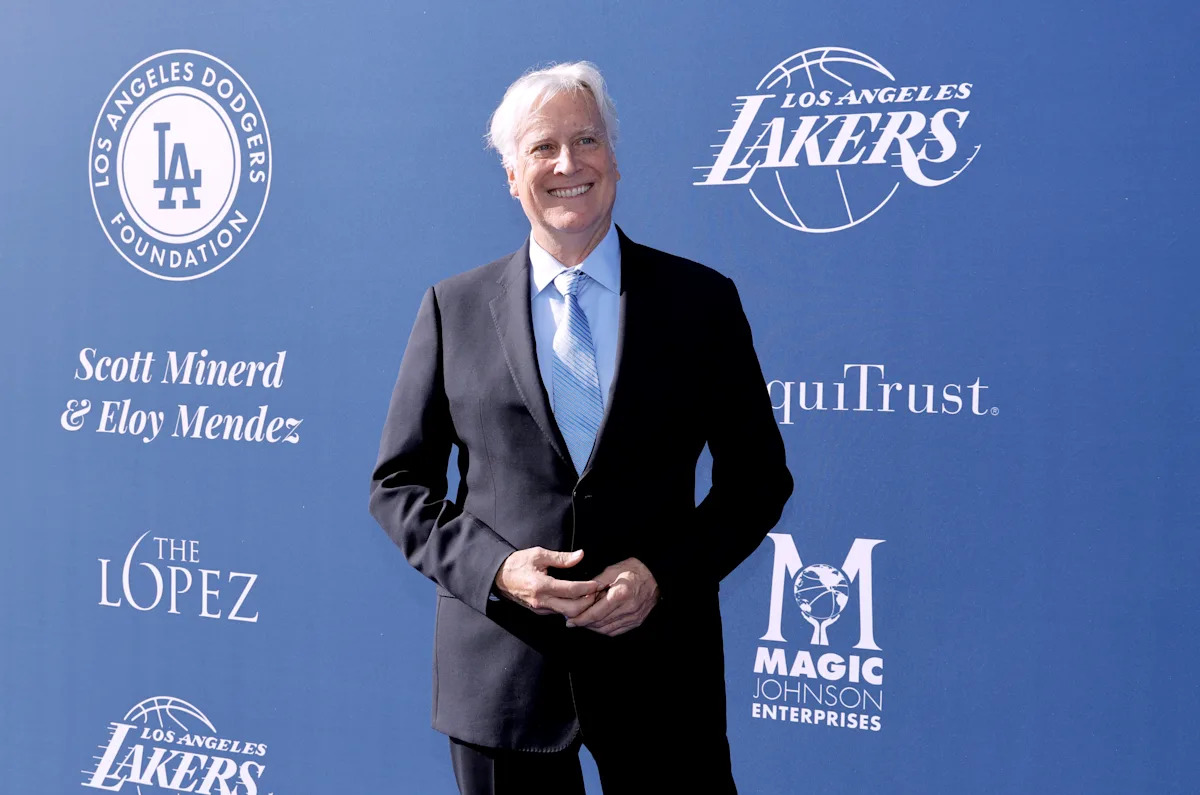For the first time in over 40 years, the Los Angeles Lakers have a new name in control: Mark Walter. Known as the principal owner of the Los Angeles Dodgers, Walter recently made headlines by striking a deal to acquire a majority stake in the Lakers, valuing the team at an unprecedented $10 billion—the highest figure in professional sports history. This acquisition prompts many to wonder whether the success Walter has achieved with the Dodgers will extend to the Lakers.
Walter’s journey as the lead investor in the Guggenheim Partners’ purchase of the Dodgers began during an era marked by mediocrity and decline. The franchise was lingering in bankruptcy when Walter and his consortium took the reins in 2012. He has since seen the team flourish, leading to two World Series championships and 11 division titles. His approach was centered not merely on financial investment but also on assembling a blend of experienced and savvy management—the keys to the Dodgers’ resurgence.
Yet, despite Walter’s impressive track record, success in baseball doesn’t ensure equivalent results in basketball. Major League Baseball (MLB) and the National Basketball Association (NBA) operate under completely different structures, influenced by distinct market dynamics, allowing certain strategies in baseball to fall flat in basketball.
### The Dodgers’ Winning Blueprint
The Dodgers’ rise to prominence describes a multifaceted strategy that includes not only deep financial backing but also an emphasis on smart management initiatives. When Walter took over, he brought in revered figures, such as Magic Johnson, to re-establish faith among fans, and enlisted the capable Stan Kasten as team president. This initial change fostered a turnaround that involved aggressive trades, notably the pivotal acquisition of All-Stars like Adrian Gonzalez and Carl Crawford. Although this move made headlines, the intent was broader: to signal to fans and the league that the Dodgers were not just a team willing to invest but a franchise ready to win.
Moreover, Walter’s key operational changes went beyond financial investment into developing talent. With Andrew Friedman at the helm of baseball operations, the Dodgers cultivated a robust player development system that has consistently driven success despite high-stakes labor dynamics. Walter’s continuous backing of management has allowed them to hone their scouting and development processes.
### What This Means for the Lakers
Lakers fans are hopeful about the prospect of Mark Walter applying a similarly aggressive and strategic approach to basketball. Historically, the Lakers have operated more like a family-run business, frequently hesitant to fully leverage their financial muscle when it came to competing against teams like the Golden State Warriors or the Los Angeles Clippers. In contrast, the Dodgers have consistently ranked amongst the top payrolls in MLB.
Walter’s entry might shift this mindset. While Jeanie Buss will reportedly remain the Lakers’ governor, Walter’s financial authority could lead to transformative changes. A willingness to operate above the luxury tax line—something we haven’t seen frequently from Laker ownership—could open new avenues for the franchise. During the LeBron James and Anthony Davis era, attempts to amass talent resulted in only brief encounters with success. However, Walter’s approach may pave the way for a more open financial strategy, essential for competing with the league’s elite.
### Identifying Strengths and Areas for Improvement
Interestingly, while the Dodgers excel in player development and scouting, the Lakers have been notable exceptions in certain areas, demonstrating resilience in finding talent. Notable signings like Austin Reaves and Alex Caruso highlight successful scouting efforts that have allowed the Lakers to develop a solid roster without solely relying on marquee trades.
While acquiring superstars can bring immediate benefits, sustaining success in the NBA often hinges on the holistic development of a franchise—from scouting and trade strategies to employee culture and brand loyalty. Under Walter’s ownership, the expectation is that these capacities would receive renewed focus and resources, ultimately enhancing the franchise’s competitive edge.
### Setting the Stage for Future Success
The Lakers have recently undergone significant shifts, from precarious times on the court to establishing a young core capable of leading the franchise into a new era. With the successful retention of a young star, Luka Dončić, the Lakers find themselves in a position to build a new foundation for long-term success. Walter’s experience at obtaining high-caliber players positions the Lakers favorably as they prepare for upcoming seasons.
In contrast to baseball, where systematic improvements can take years to yield results, basketball provides a more immediate potential for turnarounds through star acquisitions. This notion could motivate Walter to leverage financial resources to bring in transformative talent, aiming to closely replicate the Dodgers’ approach.
While no owner can guarantee prosperity, Walter’s emphasis on financial commitment, paired with his history of valuing smart management, points toward an ambitious landscape for the Lakers. His strategy will be closely scrutinized, particularly as this famed franchise aims to reclaim its esteemed status in the NBA.
### Conclusion
Mark Walter’s significant investment in the Los Angeles Lakers marks a defining moment in franchise history. Crossover mastery between different sports may not be straightforward, yet Walter’s history with the Dodgers lays a blueprint for what could be an exciting era for the Lakers. With renewed financial commitment and strategic oversight, the potential for a successful transformation of the Lakers is in play. Whether the achievements of Walter’s past can translate into the NBA remains an open question—but optimism is certainly on the rise among fans and players alike.
Source link










